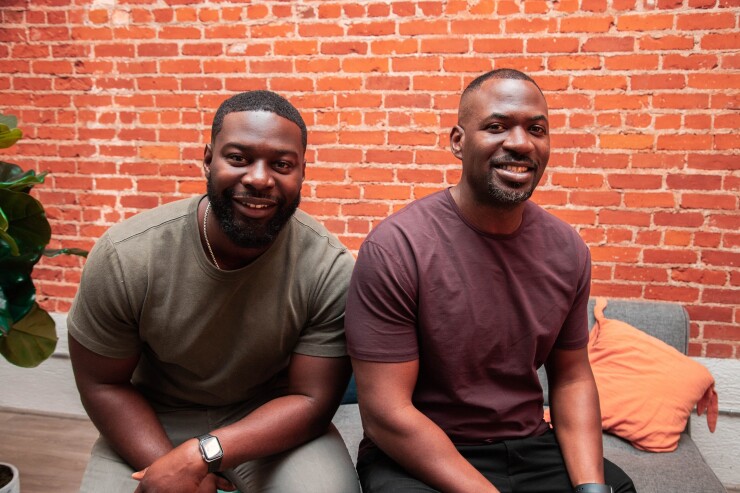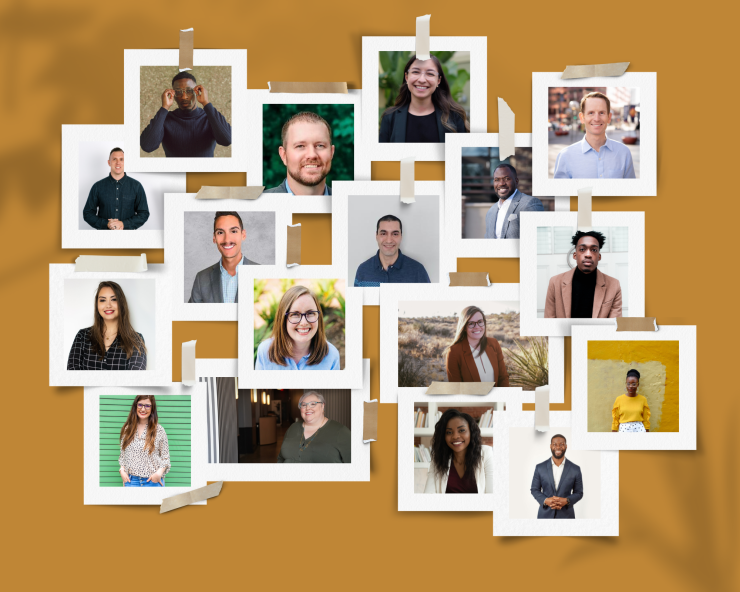Dasarte Yarnway sees the
Yarnway, the founder of
The duo said the network was born out of frustration after attending one too many financial services conferences and realizing they were often the only two black men in the room. With a membership comes discounted access to technology tools, custodial access, investment management resources, coaching support and an inclusive community to financial professionals who often feel overlooked by the industry.

But Yarnway said a version of the push and pull ethos that led to Onyx's establishment extends to how he aims to serve his clients. The ebb and flow of being uplifting and encouraging is something he believes can bring true enlightenment during advisor-client interactions.
"We should maybe not be pushing or pulling, but gently nudging them to unravel those deeper meanings for money, and what it means to them," Yarnway said. "So how do we stay focused on that? How do we not let technology get in the way, or even ourselves, get in the way of those uncomfortable things that yield the success and impact that we want to see with our clients?"
For guidance, Yarnway presented that question to a man he considers a mentor — someone famous for cutting through the noise of the financial planning process and getting to what matters most.
Carl Richards — the chief brand officer at
"To me, the piece that I can do is the conversation … real financial planning happens in conversation. So I would get as ruthless as I could about stripping away distractions from that, you know?" Richards said. "It's that deep, connective communication that is actually where your value sits. It just so happens that that's what I love the most anyway. And so if that's true for you, then just get really ruthless, and ruthless isn't exactly the right word, maybe disciplined is a better word. Get really disciplined about handing all of those other activities off to someone else.
"Now, if you love those other activities, then that's fine. But just remember that it's that one-to-one, client-facing activity is where the value lies because that can't be replicated."
Those were some of the gems dropped as Richards chatted with Yarnway, Miles-Mattingly and other members of the Onyx Advisor Network last week during the organization's February fireside chat.
The digital event, held on Feb. 22, was focused on the importance of having tough conversations with clients — and the benefits of making the effort. It also provided an example of the kinds of educational content Onyx hopes to provide to the members of its network.
People of color, women, members of the LGBTQ+ community and other groups historically excluded from the financial services industry can join the comprehensive support platform for a $549 monthly subscription.
The subscription cost — which can be billed monthly or annually — comes with a bundled technology stack including Altruist, MessageWatcher, Envestnet|MoneyGuide, RightCapital, Synergy RIA Compliance Solutions and Wealthbox. Network advisors will also have the option to invest client assets in "Onyx Model Portfolios," powered by Vanguard and Alpha Architect.

The hour-long discussion with Richards covered topics like the role of the financial advisor in today's world; how to forge deeper connections with your book of business; and addressing the gap between a client's stated purpose and their behavior.
When asked if presenting clients with the behavior gap conversation has ever cost him business, Richards said that has yet to happen. But he recalled a couple of experiences out of hundreds when he worked with clients who just couldn't let go of portfolio performance as the most important part of the relationship.
"They're like, 'I didn't come to cry on your couch. I don't even know what this question means. I just want the best investment performance!'" Richards said, noting that if those kinds of interactions persist, he takes a step back and simply asks the client why they're speaking with him in the first place.
"And they say 'well … the guy down the street blew up my portfolio.' OK, so you have somebody now that helps you with investments? How did you hire them?" Richards explained, saying that through a series of questions, he can determine if that client truly wanted a planner, or simply someone who could help them outperform an index.
"So essentially you're asking me now to do the same thing that you asked that person to do. Except you're expecting a different result. That's kind of crazy. Can I just humbly suggest that there's a better way?" Richards said. "And I've had two times where people are just like, 'No, clearly I'm in the wrong place.'"
Miles-Mattingly said the process of truly understanding why a client hires an advisor reminds him of
Miles-Mattingly continued,"You talk through the complexity of life. Everybody comes in with everything that they think is important, or may not even realize what the really important things are. But walking them through that and getting everything elegantly simplistic is just beautiful."
Walking that journey with clients also motivates Yarnway, who wants clients to become the hero of their own financial story. He then asked Richards which questions advisors should ask prospects at the onset of the relationship and throughout the relationship to put them in that hero position.
For Richards, helping clients find their superpowers and don their capes isn't something that can happen in one conversation. You may get 70% of the way in the first meeting, but planners should think of the process more like an archaeological dig that requires great attention and finer brushes over time.
"The first question is not as important as the ability to follow up. To dive a little bit deeper. That first question just gets us started. If it's uncomfortable, I used to think that was a sign I was on the wrong path. Now, I realize that that uncomfortable feeling is a sign I'm on the right path," Richards said. "Because if it's a good question, it's almost by definition something somebody hasn't been asked before. And they probably won't have an answer right away. So it's leaning into that uncomfort, and then realize you're going to get a get me out of jail answer first. It's never the right answer."








